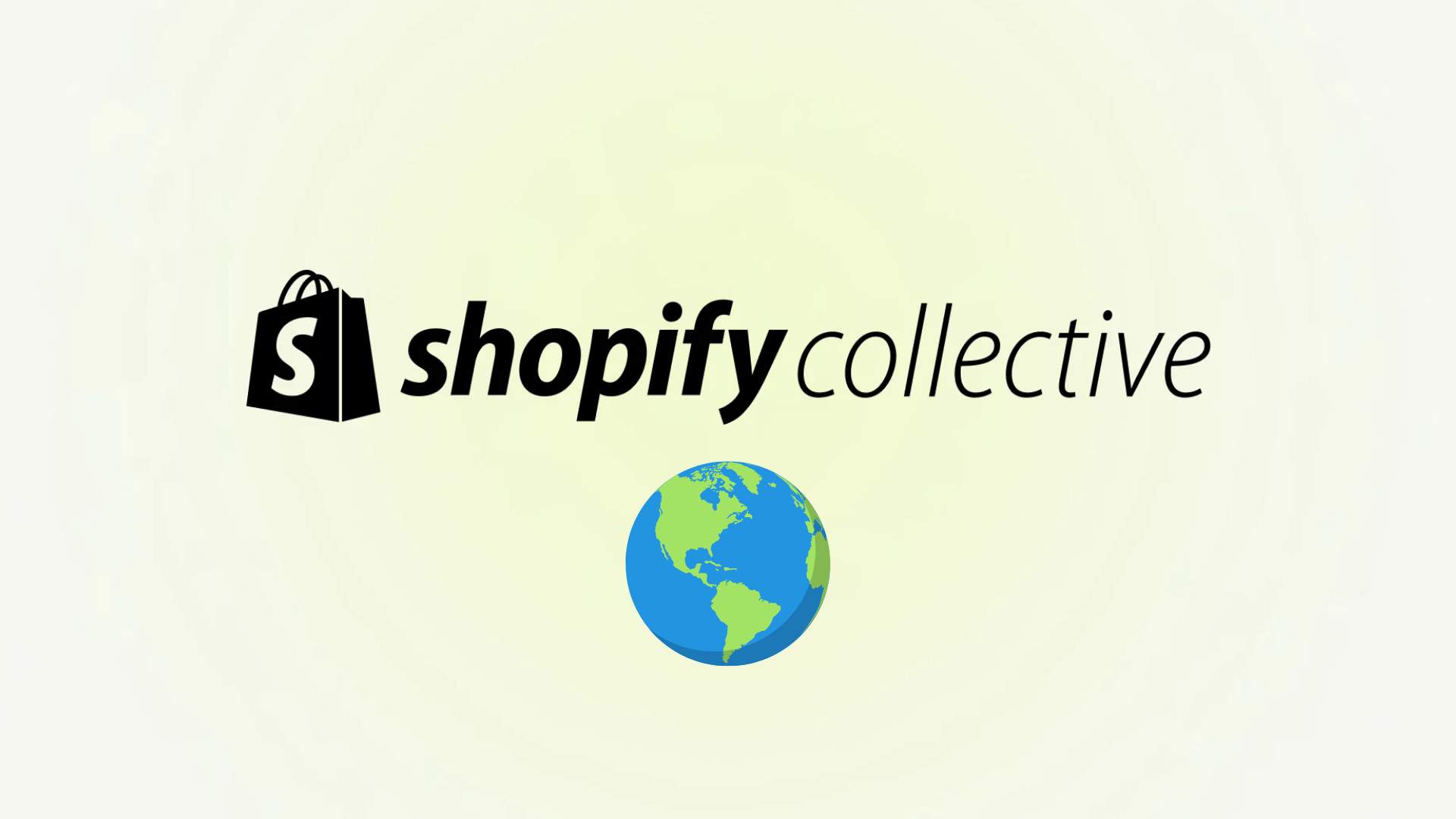Shopify recently announced a major expansion of its Shopify Collective service, making it available in 36 additional countries.
Previously restricted to merchants based in the U.S. and Canada, Shopify Collective now allows retailers and suppliers across a much wider range of regions to collaborate seamlessly:
- It lets retailers source products from existing brand partners and add them to their online store in just a few clicks (with inventory levels and pricing updated automatically). This means that retailers don’t have to fulfil any items — when a customer places an order, it’s automatically forwarded to the brand partner, who then handles fulfillment.
- It gives suppliers (or existing merchants) a simple way to distribute products via brand partners’ stores, expanding their sales channels in the process. Orders, payments, and fulfillment logistics are all outsourced or automated.
Both sides of the relationship are managed within the Shopify platform (via the installation of Shopify Collective apps).
Supported countries for the Shopify Collective sales channel
To be eligible to use the Shopify Collective sales channel, a store must be located in one of the following supported countries:
| Country | Connect with retailers by direct invite * | Connect with retailers through Discovery * |
|---|---|---|
| Austria | ✔ | ✔ |
| Belgium | ✔ | ✔ |
| Bulgaria | ✔ | ✔ |
| Canada | ✔ | ✔ |
| Croatia | ✔ | ✘ |
| Cyprus | ✔ | ✘ |
| Czechia | ✔ | ✔ |
| Denmark | ✔ | ✔ |
| Estonia | ✔ | ✘ |
| Finland | ✔ | ✔ |
| Germany | ✔ | ✔ |
| Gibraltar | ✔ | ✘ |
| Greece | ✔ | ✔ |
| Hong Kong | ✔ | ✔ |
| Hungary | ✔ | ✔ |
| Ireland | ✔ | ✔ |
| Italy | ✔ | ✔ |
| Japan | ✔ | ✔ |
| Latvia | ✔ | ✘ |
| Liechtenstein | ✔ | ✘ |
| Lithuania | ✔ | ✔ |
| Luxembourg | ✔ | ✘ |
| Malta | ✔ | ✘ |
| Mexico | ✔ | ✔ |
| Netherlands | ✔ | ✔ |
| New Zealand | ✔ | ✔ |
| Norway | ✔ | ✔ |
| Poland | ✔ | ✔ |
| Portugal | ✔ | ✔ |
| Romania | ✔ | ✔ |
| Slovakia | ✔ | ✔ |
| Slovenia | ✔ | ✘ |
| Spain | ✔ | ✔ |
| Sweden | ✔ | ✔ |
| United Kingdom | ✔ | ✔ |
| United States | ✔ | ✔ |
* In Shopify Collective, there are two ways to connect with brand partners. The first involves a direct invite — where a relationship is set up by a supplier sending an invitation to a retailer to list their goods. The second is via Shopify’s Discover page, which works more like a marketplace: retailers can browse a curated selection of suppliers and start partnerships with those suppliers instantly.
Why this matters for Shopify merchants
The expansion of Shopify Collective makes it easier for Shopify merchants to scale their online businesses without taking on the costs and risks of holding stock.
And more Shopify retailers now have the ability to broaden product ranges and test new categories quickly, while suppliers get the option to sell their products via a much wider range of online stores.
Chris Singleton is the Founder and Director of Ecommercetrix.
Since graduating from Trinity College Dublin in 1999, Chris has advised many businesses on how to grow their operations via a strong online presence, and now he shares his experience and expertise through his articles on the Ecommercetrix website.
Chris started his career as a data analyst for Irish marketing company Precision Marketing Information; since then he has worked on digital projects for a wide range of well-known organizations including Cancer Research UK, Hackney Council, Data Ireland, and Prescription PR. He then went on to found the popular business apps review site Style Factory, followed by Ecommercetrix.
He is also the author of a book on SEO for beginners, Super Simple SEO.
